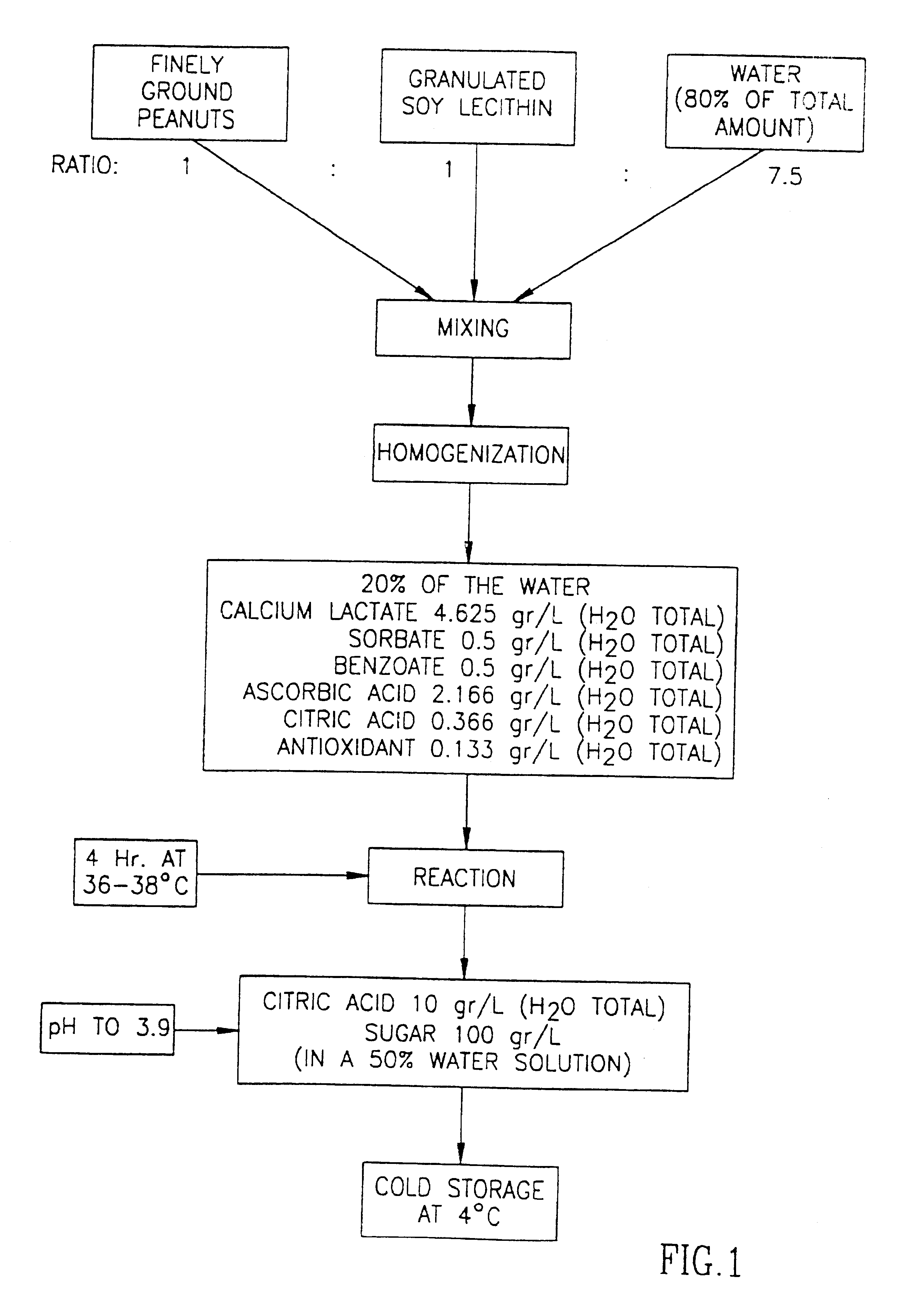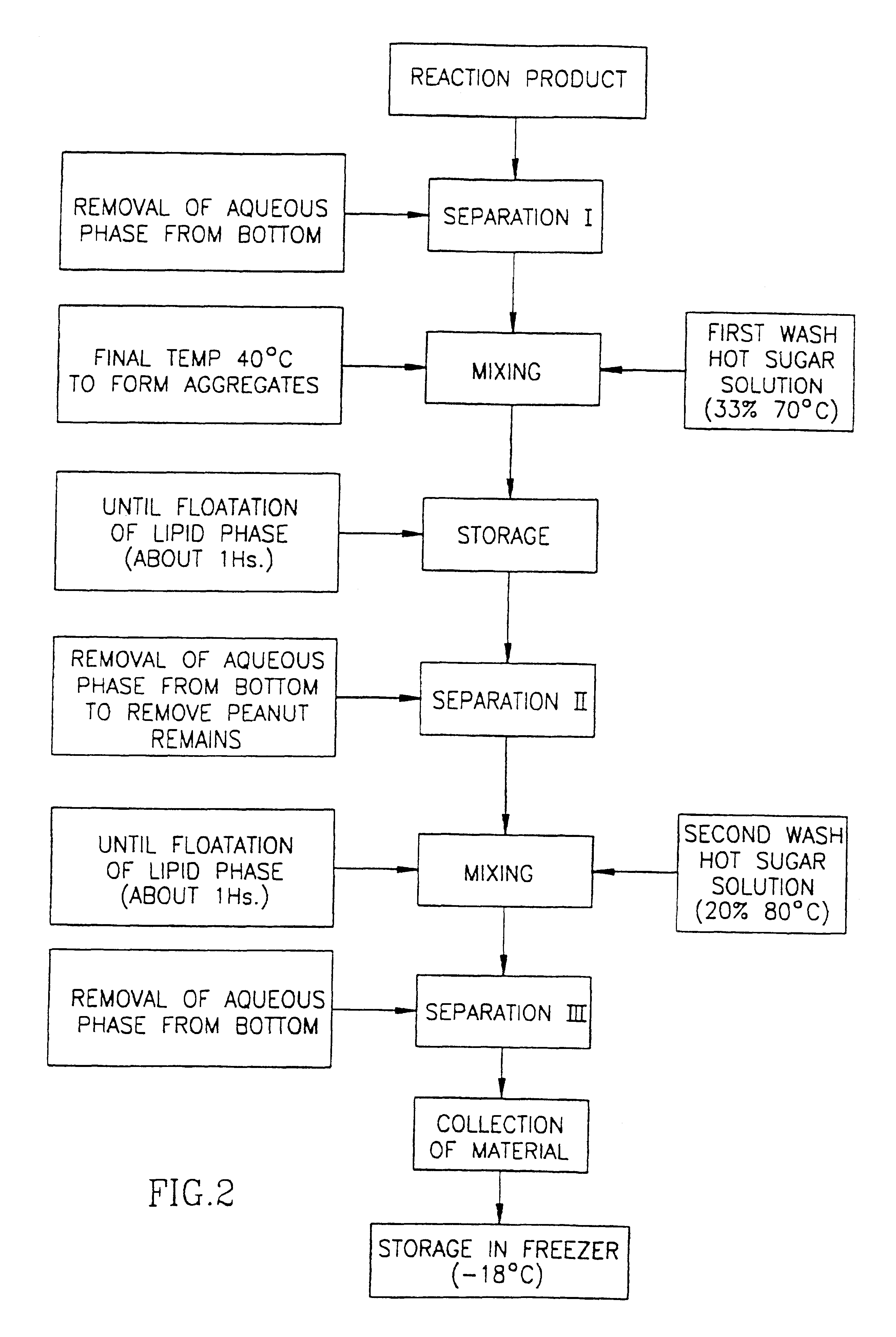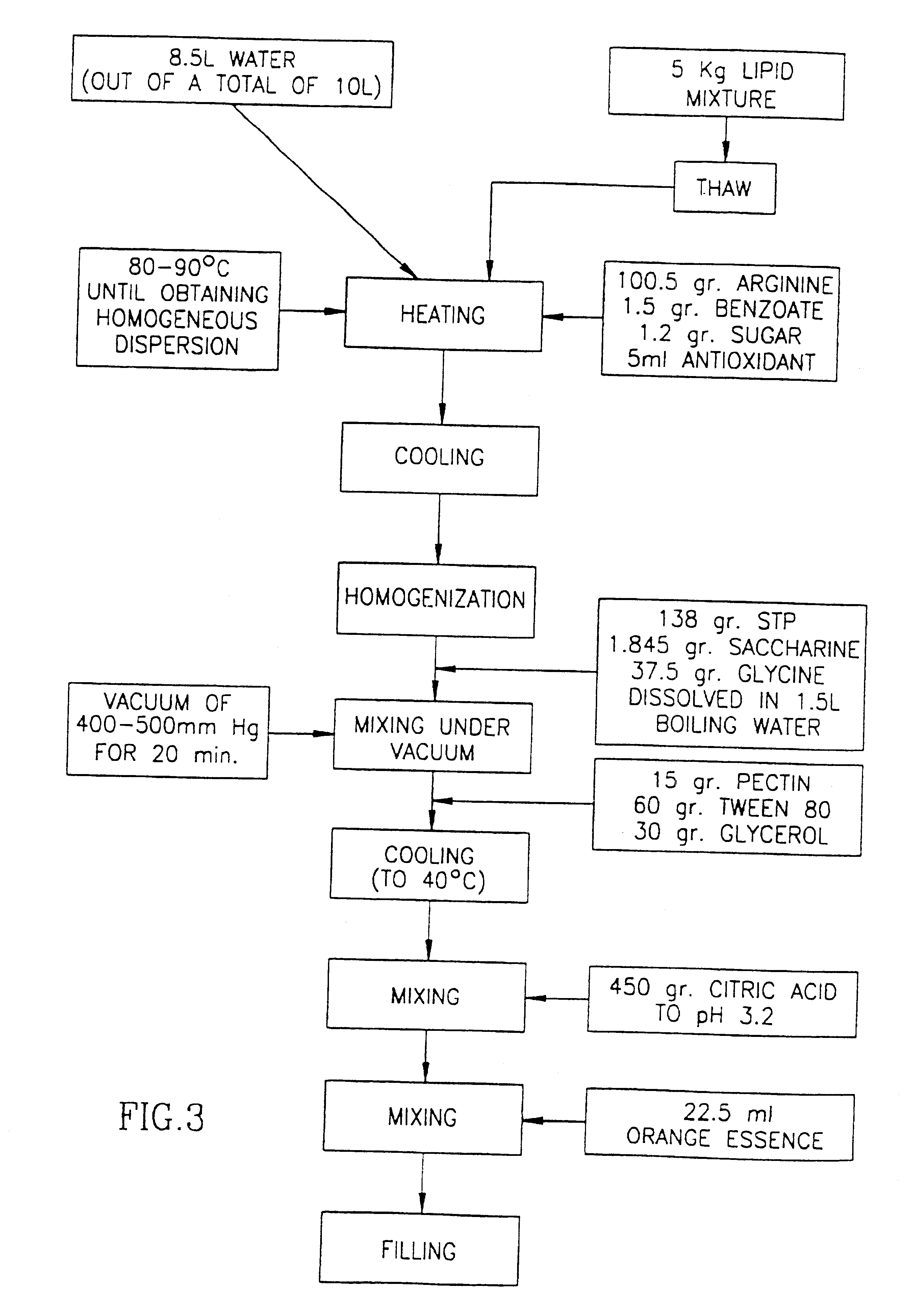Method for the treatment of cancer using phosphatidic acid-comprising compositions
a technology of phosphatidic acid and composition, which is applied in the direction of phosphorous compound active ingredients, fatty acid chemical modification, drug compositions, etc., can solve the problems of lipid extracts available for human consumption, pain and tedious process, and failure of cancer therapy involving use of cytotoxic drugs
- Summary
- Abstract
- Description
- Claims
- Application Information
AI Technical Summary
Benefits of technology
Problems solved by technology
Method used
Image
Examples
example 2
The Effect of Phosphatidic Acid (PA) on Lipid Viscosity of Human Lymphocyte Membranes
Human lymphocytes (3.times.10.sup.6 / ml) from 10 healthy individuals were incubated with 1 mg / ml of 4 different phospholipid preparations and 1 control preparation (phosphate buffered saline-PBS).
The results depicted in FIG. 6 demonstrate the effect of PA in decreasing membrane viscosity (i.e. increasing cell membrane fluidity). It can be seen that at all times, the effect of PA above or in a 1:1 mixture with PC was much stronger than the two other tested preparations.
example 3
Treatment of Menopause Women with a 50% Lipid Mixture
Three groups, each consisting of 10 women over 50 who suffered from hot flushes syndrome, participated in the study. Group A continued routine life without treatment. Group B consumed 12 g of 50% PA lipid mixture (prepared as in Example 1) dispersed in 50 ml of water before breakfast for 40 days. Group C similarly received 24 g of the 50% PA rich lipid mixture in 100 ml of water for 40 days. Each of the participants in Group A, B and C was asked to record the number and intensity level of their daily hot flushes from day 3 to day 40 of the experiment. Participants of Group C were asked to determine these parameters for 3 days one month after termination of the trial (Group D). The results are presented in Table 1 below:
example 4
Alleviation of Morphine Withdrawal Symptoms by 50% PA Rich Lipid Mixture
Experiments were carried out as outlined in Heron et al., Eup. J. Pharmacol., 83, (1982), 253-261. Two groups of 20 mice each were injected subcutaneously twice daily with morphine HCl solution (10 mg / ml) in saline up to 100 mg / kg for 9 days, or with saline alone (control). The treated group was divided into two sub-groups each receiving a 6% lipid diet. One group of mice received corn oil and the other a PA rich diet (the PA preparation prepared as in Example 1). The withdrawal syndromes were induced by injection (i.p.) with naloxone (2.5 mg / kg), and then recorded for a period of 25 min in a blind mode.
The results, shown in Table 2 below, demonstrate that PA had a very strong reducing effect on the mices' withdrawal symptoms.
PUM
| Property | Measurement | Unit |
|---|---|---|
| viscosity | aaaaa | aaaaa |
| pH | aaaaa | aaaaa |
| w/w | aaaaa | aaaaa |
Abstract
Description
Claims
Application Information
 Login to View More
Login to View More - R&D
- Intellectual Property
- Life Sciences
- Materials
- Tech Scout
- Unparalleled Data Quality
- Higher Quality Content
- 60% Fewer Hallucinations
Browse by: Latest US Patents, China's latest patents, Technical Efficacy Thesaurus, Application Domain, Technology Topic, Popular Technical Reports.
© 2025 PatSnap. All rights reserved.Legal|Privacy policy|Modern Slavery Act Transparency Statement|Sitemap|About US| Contact US: help@patsnap.com



